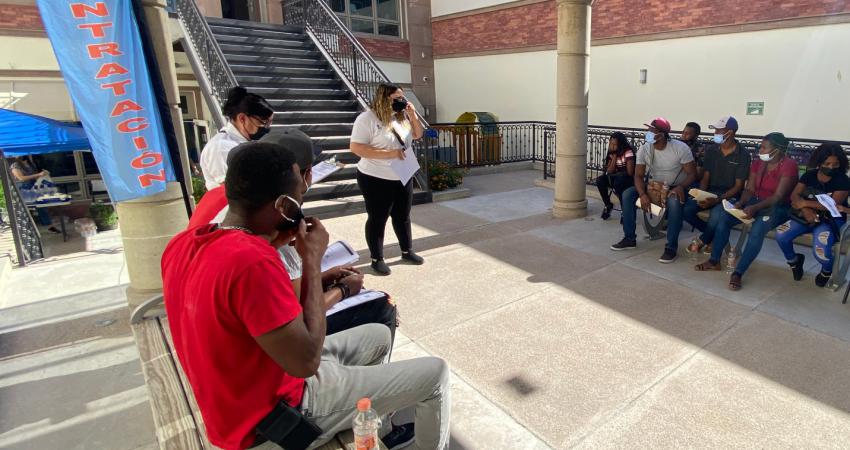IOM promotes cross-sectoral dialogue on ethical recruitment as key to guaranteeing rights of migrant workers

SAN JOSÉ, COSTA RICA. 25 August 2023. As part of the “Program to Strengthen Ethical Recruitment Practices and Capacity Building for Relevant Actors” in El Salvador, Guatemala, Honduras and Costa Rica, IOM completed a series of efforts focused on ethical recruitment, prevention of smuggling and trafficking of migrant workers, human rights and protection, and regulation of the hiring process in a cross-border migration context.
"Contributing to the strengthening of the technical capacity of stakeholders in intraregional and international ethical recruitment is fundamental to seek compliance with the human and labor rights of migrants," said IOM Regional Director for Central America, North America and the Caribbean, Michele Klein-Solomon.
Within the framework of this Program, an agreement with civil society organizations was signed to ensure human rights assistance and support to migrant workers, to promote opportunities for exchange, discussion and coordination between the IOM, governments, and civil society, as well as the consolidation of a network for monitoring and oversight of ethical hiring practices, among other measures.
In addition, technical materials on this matter were translated into Spanish to make them more accessible to counterparts, such as the IRIS Handbook for Governments on Ethical Recruitment and Migrant Worker Protection, IOM's flagship global guidance tool for governments on this topic, which is based directly on the Montreal Recommendations on recruitment.
Finally, this week a space for a regional dialogue entitled "Ethical Recruitment and Labor Migration Governance: Stakeholder Perspective and Input" was facilitated for the exchange of knowledge, experiences and contacts between stakeholders in the governance of labor migration, with the aim of promoting an ethical recruitment approach to international hiring processes and migration attention. Some 112 participants from hiring agencies, employers, governments and civil society representatives from El Salvador, Honduras, Guatemala, Costa Rica, Mexico, Dominican Republic, Canada and the United States participated in the activity.
“Events like this one are so important as a way to improve the cooperation, communication, and coordination between governments, CSOs, and other stakeholders in countries of origin and destination so we can better combat human trafficking and unethical recruitment,” noted Jeneane Fast, Research and Policy Associate at The Canadian Centre to End Human Trafficking.
These actions respond to objectives 5 and 6 of the Global Compact on Migration to increase the availability and flexibility of regular migration channels and facilitate fair and ethical recruitment, as well as to safeguard conditions that guarantee decent work. In turn, it builds on the commitments of the Los Angeles Declaration on Migration and Protection and the Montreal Recommendations on recruitment to promote better regulation.
This project was implemented by the International Organization for Migration with funding from the Immigration, Refugees and Citizenship Canada (IRCC) Project, and complementary to the labour migration efforts of the Western Hemisphere Program (WHP) of the U.S. Department of State’s Bureau of Population, Refugees, and Migration. For more information, please contact Natalia Alvarez at nalvarez@iom.int.
